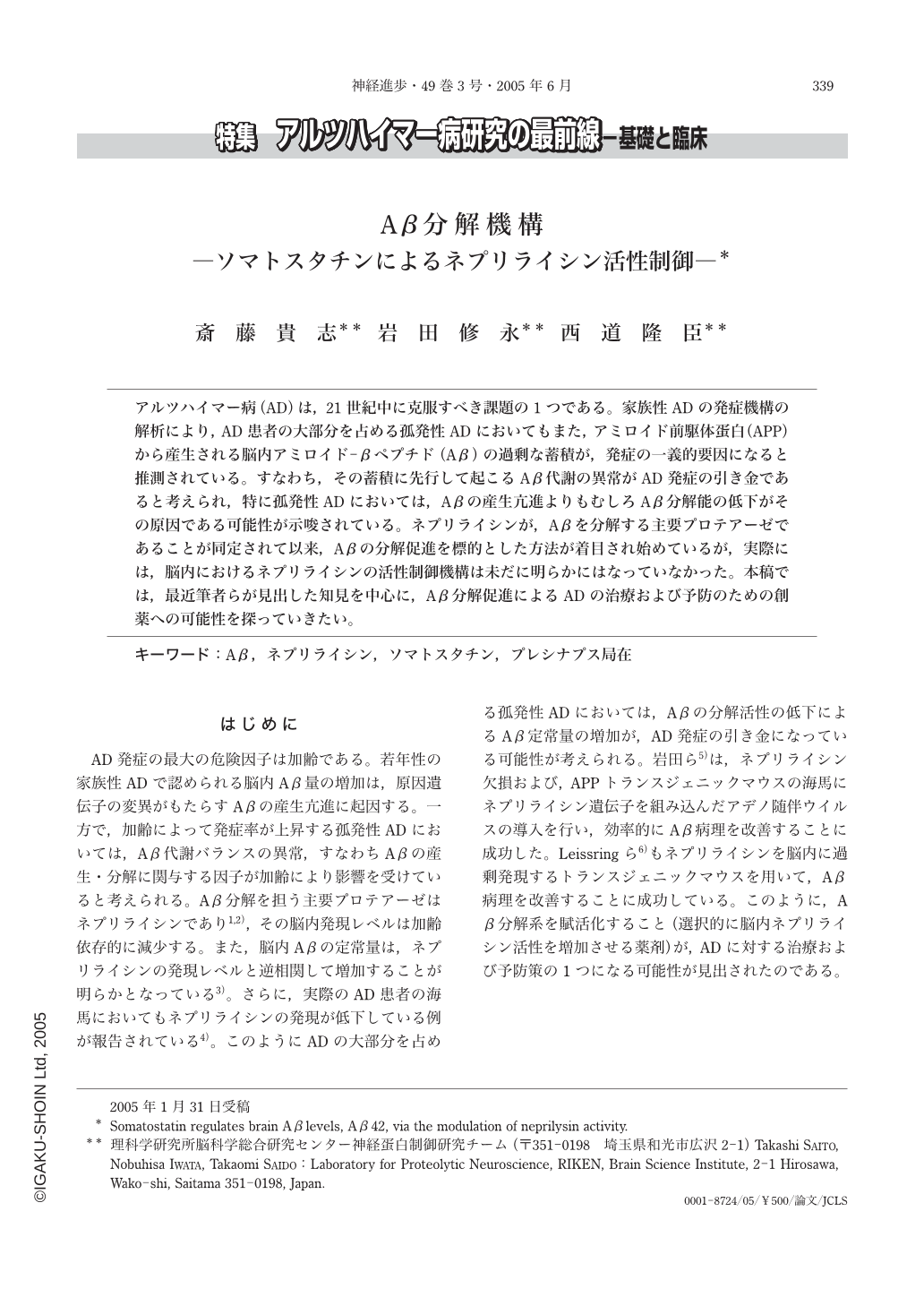Japanese
English
- 有料閲覧
- Abstract 文献概要
- 1ページ目 Look Inside
アルツハイマー病(AD)は,21世紀中に克服すべき課題の1つである。家族性ADの発症機構の解析により,AD患者の大部分を占める孤発性ADにおいてもまた,アミロイド前駆体蛋白(APP)から産生される脳内アミロイド-βペプチド(Aβ)の過剰な蓄積が,発症の一義的要因になると推測されている。すなわち,その蓄積に先行して起こるAβ代謝の異常がAD発症の引き金であると考えられ,特に孤発性ADにおいては,Aβの産生亢進よりもむしろAβ分解能の低下がその原因である可能性が示唆されている。ネプリライシンが,Aβを分解する主要プロテアーゼであることが同定されて以来,Aβの分解促進を標的とした方法が着目され始めているが,実際には,脳内におけるネプリライシンの活性制御機構は未だに明らかにはなっていなかった。本稿では,最近筆者らが見出した知見を中心に,Aβ分解促進によるADの治療および予防のための創薬への可能性を探っていきたい。
The deposition of amyloid β peptide(Aβ)initiates the pathological cascade leading to Alzheimer's disease(AD). In attempts to reduce the levels of Aβ deposited in the brain which would alleviate the pathology of AD pathology, we previously reported that increasing brain neprilysin activity, a major in vivo Aβ-degrading enzyme, represents an effective strategy. Although the enzymology of neprilysin is well known, the regulatory mechanism associated with its actions, particularly in the brain, are not well understood. We established an in vitro assay system to evaluate neprilysin activity, and identified some neuropeptides that regulate its activity. In particular, somatostatin(SST)was found to induce an increase in neprilysin activity and to reduce Aβ42 levels, in a study using primary neurons. In addition, neprilysin activity and the presynapse localization of neprilysin is lower in SST-deficient mice brains, and its counteraction resulted in an increase in hydrophobic Aβ, relatively selective Aβ42. These in vitro and in vivo paradigms suggest that SST regulates neprilysin activity in the brain. The aging-induced downregulation of SST levels may be a trigger for the deposition of Aβ, thus leading to late-onset sporadic AD and, as a result, SST receptor(s)emerge as pharmacological target candidates for the prevention and a therapeutic strategy for AD.

Copyright © 2005, Igaku-Shoin Ltd. All rights reserved.


